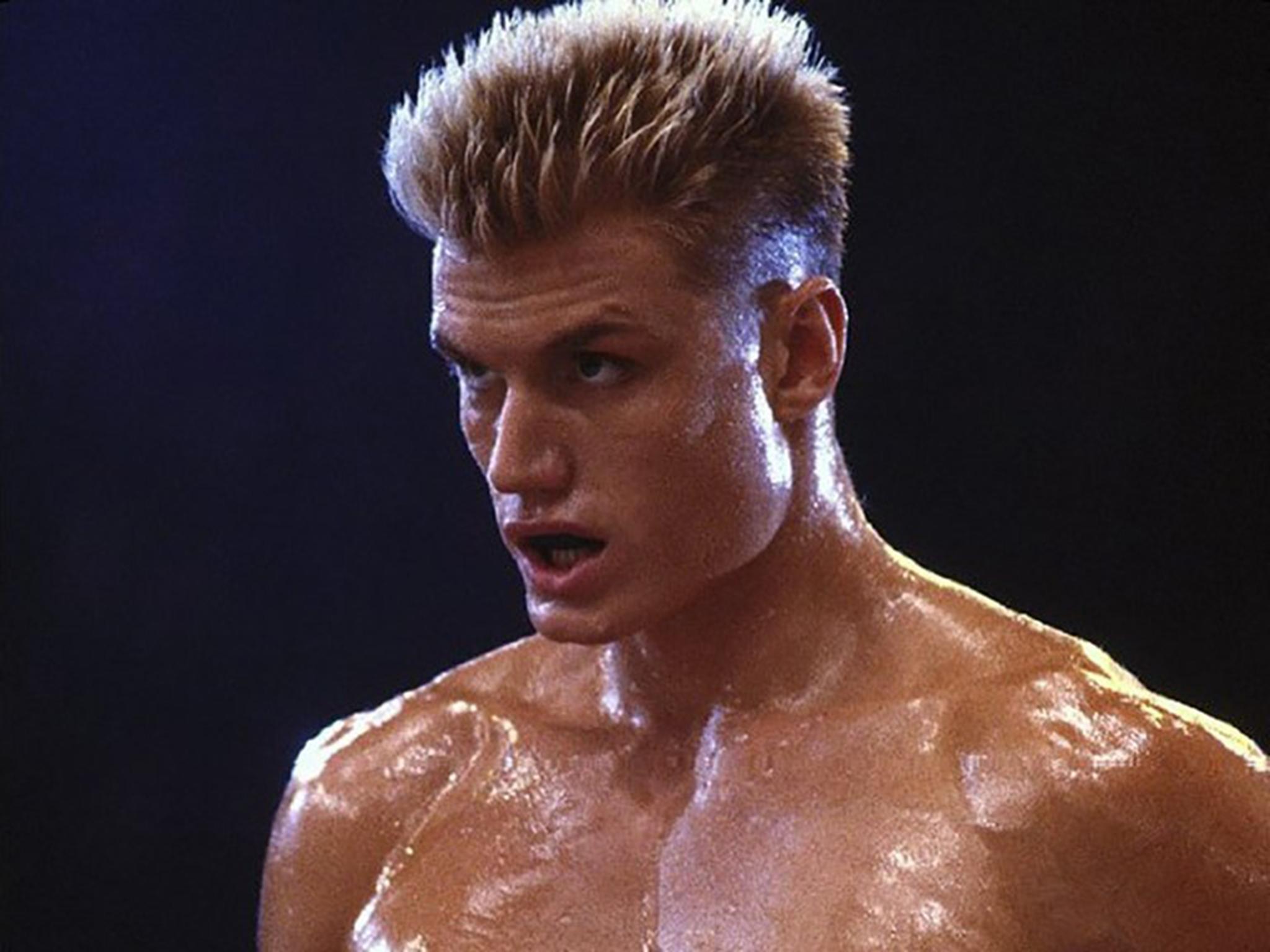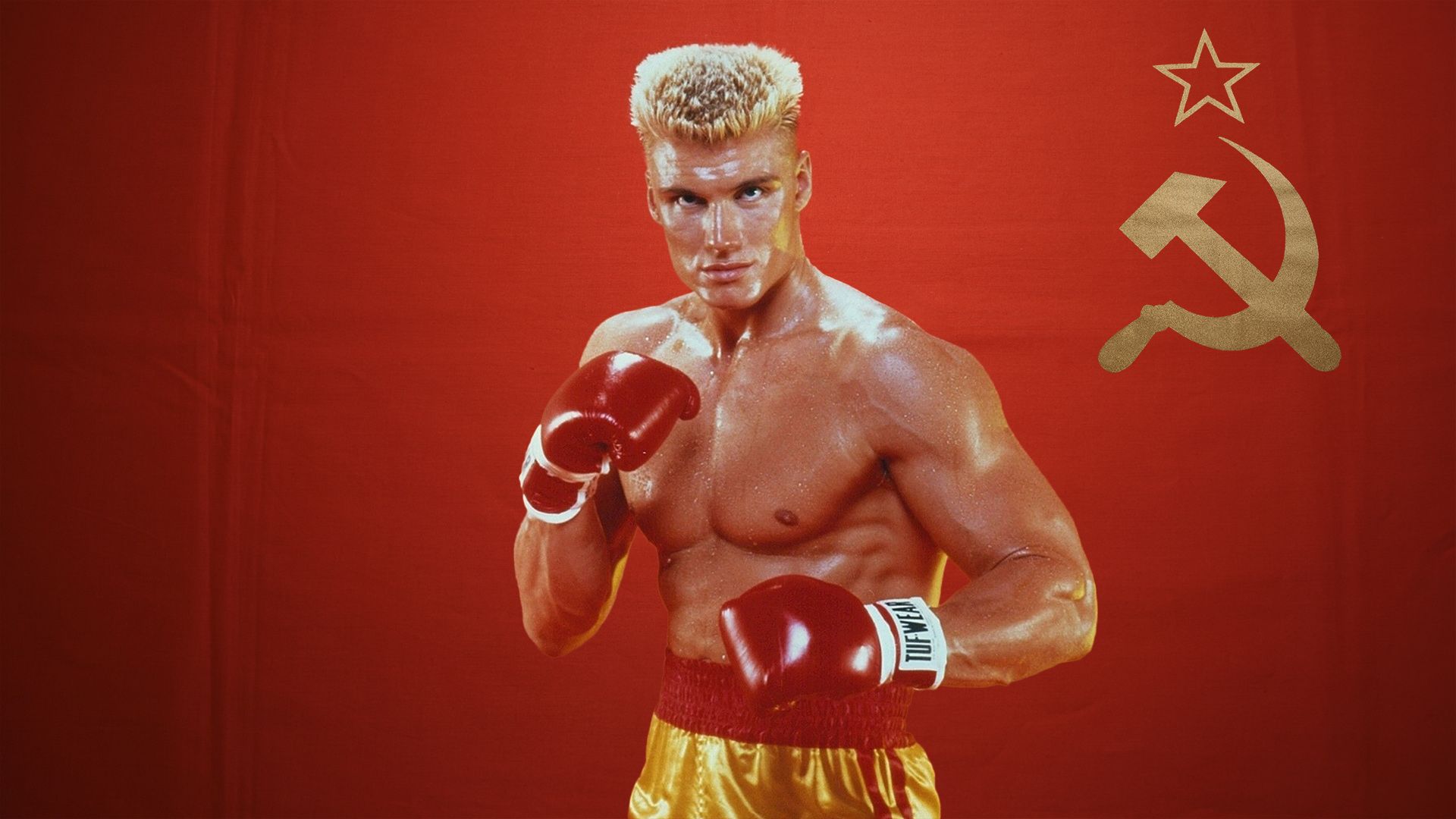Ivan Drago: The Siberian Express's Enduring Legacy
Ivan Drago, a name synonymous with raw power and Cold War-era menace, stands as one of the most iconic antagonists in cinematic history. More than just a formidable opponent, Drago embodied an era, a political ideology, and the very essence of an unstoppable force. From his chilling debut in 1985's *Rocky IV* to his poignant return in *Creed II*, his character has left an indelible mark on the *Rocky* franchise and popular culture, forever altering the trajectory of its beloved protagonist, Rocky Balboa, and tragically ending the life of Apollo Creed.
This article delves deep into the character of Ivan Drago, exploring his origins, his unparalleled physical prowess, his pivotal role in the *Rocky* universe, and the lasting legacy he continues to hold. We will uncover the layers behind the stoic, chemically-enhanced Soviet champion, examining how he became a symbol of his time and a figure whose impact resonates decades after his initial appearance. Prepare to revisit the man behind the machine, the "Siberian Express" who redefined what it meant to be a cinematic boxing villain.
Table of Contents
- Biography of Ivan Drago: The Soviet Colossus
- Personal Data: Ivan Vasilyevich Drago
- The Origin Story: A Product of Soviet Ambition
- Unparalleled Power: The Physics of Drago's Punches
- The Fateful Showdown: Drago vs. Apollo Creed
- The Cold War Symbol: Drago's Cultural Impact
- Dolph Lundgren: The Man Behind the Machine
- The Legacy and Return in Creed II
Biography of Ivan Drago: The Soviet Colossus
While Ivan Drago is a fictional character, his narrative within the *Rocky* cinematic universe is meticulously crafted, giving him a distinct and impactful "biography." Born Ivan Vasilyevich Drago on February 23, 1956, in Moscow, Soviet Union, he emerged as a prodigious amateur boxer and an Olympic gold medalist. His early career was marked by immense strength and a stoic demeanor, earning him the moniker "The Siberian Express." Drago was not merely a natural talent; he was also a product of the Soviet system's relentless pursuit of athletic superiority, reportedly enhanced by chemical formulas created by brilliant Soviet scientists. This, combined with a rigorous training regimen that pushed his body to its absolute limits, molded him into the ruthless and aggressive fighting machine seen in *Rocky IV*.
His professional debut on American soil was orchestrated as a propaganda spectacle during the height of the Cold War. It was here that he faced Apollo Creed, a decision driven by Creed's desire to boost morale for the U.S.A. Tragically, this exhibition match turned fatal, with Drago brutally defeating and killing Apollo Creed in the ring. This event cemented Drago's status as the main antagonist of the *Rocky* franchise and Rocky Balboa's archenemy. The subsequent fight against Rocky Balboa in Moscow, a raw, unscripted battle that transcended sport to become a symbolic clash of ideologies, saw Drago suffer his first professional defeat. This loss, according to actor Dolph Lundgren, plunged Drago into a "living hell" since 1985, forcing him into obscurity and a life far removed from his former glory. However, his story was far from over, as he would later return to the ring, not as a fighter, but as a trainer and father, in *Creed II*, facing the son of the man he killed, Adonis Creed.
Personal Data: Ivan Vasilyevich Drago
Though a fictional character, Ivan Drago's attributes are detailed within the *Rocky* saga, painting a picture of his formidable presence:
| Attribute | Detail |
|---|---|
| Full Name | Ivan Vasilyevich Drago |
| Russian Name | Иван Васильевич Драго |
| Born | February 23, 1956 |
| Birthplace | Moscow, Soviet Union |
| Nationality | Soviet (formerly), Russian |
| Occupation | Former Soviet Military Captain, Amateur Boxer, Olympic Gold Medalist, Professional Boxer, Trainer |
| Portrayed By | Dolph Lundgren |
| Notable Feats | Olympic Gold Medalist, Defeated and killed Apollo Creed |
| Punching Power | Average 2230 PSI (Pounds per Square Inch), shown to inflict 1800-2000 PSI worth of damage. Capable of generating almost 4 tons of force. |
| Nickname | The Siberian Express |
| Family | Ludmilla Vobet Drago (wife), Viktor Drago (son) |
| First Appearance | Rocky IV (1985) |
The Origin Story: A Product of Soviet Ambition
Ivan Drago's character is deeply rooted in the political climate of the 1980s, specifically the Cold War. He wasn't just a boxer; he was a carefully engineered symbol of Soviet power and a testament to their scientific and athletic prowess. His backstory paints him as a man meticulously crafted for dominance, embodying the Soviet Union's desire to showcase its superiority on the global stage.
From Amateur to Olympic Gold Medalist
Before his devastating professional debut, Ivan Drago had already carved out a formidable reputation as an amateur boxer. His journey began in the Soviet Union, where he quickly rose through the ranks, demonstrating immense strength and raw talent. He was not just a promising athlete but a national asset. His amateur career culminated in an Olympic gold medal, solidifying his status as the greatest boxer in the Soviet Union. This early success established him as a legitimate, albeit terrifying, force in the boxing world, setting the stage for his entry into the professional arena.
The Scientific Enhancement of a Superhuman
What truly set Ivan Drago apart from his contemporaries, however, was the whispers and later, the blatant displays, of scientific enhancement. The "Data Kalimat" explicitly states that Drago was "enhanced with chemical formulas created by brilliant Soviet scientists." This, coupled with a "rigorous training that pushed his body to the limit," transformed him into what some describe as "low superhuman." The use of hormones, anabolics, and steroids turned an already gifted athlete into a seemingly invincible machine. This aspect of his character was crucial to his portrayal, emphasizing the Soviet Union's willingness to use any means necessary to achieve supremacy, even if it meant blurring the lines between natural ability and artificial augmentation. This enhancement was not just about winning; it was about projecting an image of an unstoppable, technologically superior nation.
Unparalleled Power: The Physics of Drago's Punches
One of the most defining characteristics of Ivan Drago is his extraordinary punching power. The film graphically illustrates this, and the provided data quantifies it, making him a truly unique and terrifying opponent in the *Rocky* universe. His punches weren't just hard; they were lethal, a testament to his enhanced physiology and rigorous training.
The 2230 PSI Impact and Its Devastating Consequences
The "Data Kalimat" reveals astonishing figures regarding Ivan Drago's punching power: "Armed with an average punch of 2230 psi, he is able to kill Rocky Balboa's friend and later trainer, Apollo Creed." Furthermore, his punches are "shown to inflict 1,800 psi worth of damage," and he "popped a casual 1850 at an expo and is generally considered to be in the 2000psi range." To put this into perspective, with a "4 inch impact point (guestimate), Drago is bringing in almost 4 tons of force." This level of force is described as being enough to "break the bones in whatever body part it hit" and a "straight shot of that magnitude would kill a regular human flat."
These figures are not just impressive; they are central to understanding the threat Drago posed. His power wasn't just about winning rounds; it was about inflicting catastrophic damage. The tragic death of Apollo Creed serves as the ultimate, chilling proof of this destructive capability, establishing Ivan Drago as a force unlike any other seen in boxing cinema. It underscored the stakes of the fight with Rocky, elevating it from a mere sporting contest to a fight for survival and vengeance.
Drago vs. Other Heavyweights: A Class Apart
When compared to other formidable opponents in the *Rocky* series, Ivan Drago stands in a league of his own. The data suggests that "Drago is physically stronger, tougher, and punches much harder than Lang." While Clubber Lang, Rocky's antagonist in *Rocky III*, was known for his aggressive, all-out style in the first round, Drago's power was sustained and scientifically augmented. The comparison to real-world boxers like Mike Tyson also highlights Drago's exaggerated strength. While Tyson in his prime "could probably punch harder than Frank Bruno," Drago's documented PSI levels place him in "another category," likely "low superhuman."
The discussion of a hypothetical match between Mike Tyson and Ivan Drago, even with Tyson absorbing the skills of Muhammad Ali, suggests that Drago's power is so immense it transcends conventional boxing. This reinforces the idea that Drago was not just a boxer but a weapon, a "machine of destruction," designed to be unbeatable. His stamina and speed advantage over Clubber Lang further solidify his position as arguably the greatest and most dangerous opponent Rocky ever faced.
The Fateful Showdown: Drago vs. Apollo Creed
The catalyst for the entire *Rocky IV* narrative, and indeed a significant turning point for the franchise, was the exhibition match between Ivan Drago and Apollo Creed. Apollo, long past his prime but still possessing an indomitable spirit, saw the fight as an opportunity to reignite his career and make a patriotic statement during the Cold War. He underestimated the sheer, brutal force of Drago. The fight, meant to be a spectacle, quickly devolved into a horrifying display of Drago's power. Despite Rocky's pleas to stop the fight, Apollo, ever the showman, refused to quit. Drago, cold and emotionless, delivered a series of devastating blows that ultimately led to Apollo Creed's death in the ring. This moment, shocking and visceral, immediately established Ivan Drago as not just an opponent, but a killer, transforming the narrative from a boxing drama into a revenge saga for Rocky Balboa. It underscored Drago's ruthless nature and his chillingly detached approach to his opponents: "If he dies, he dies."
The Cold War Symbol: Drago's Cultural Impact
*Rocky IV* was released in 1985, at the height of the Cold War and Ronald Reagan's presidency. The film became the biggest success of the *Rocky* series, largely due to its potent, albeit "manichaean," message and its "Cold War overtones." Ivan Drago was not merely a character; he was a living embodiment of the perceived Soviet threat. His stoic silence, his reliance on technology and chemical enhancements, and his sheer destructive power mirrored Western anxieties about the Soviet Union's military and technological might. He was portrayed as a "machine of destruction," a stark contrast to Rocky's human grit and emotional resilience.
Beyond his political symbolism, Drago has also been described as a "horror icon with a chilling score and a silent stare," resembling figures like Michael Myers. This comparison highlights the primal fear he evoked, not just as a boxer, but as an almost inhuman force. His influence on the *Rocky* series is undeniable; he raised the stakes to an unprecedented level, forcing Rocky to confront not just a physical challenge, but a symbolic one. The film's climactic fight, where Rocky, the American underdog, triumphs over the Soviet machine, resonated deeply with audiences and cemented Drago's place as a powerful cultural touchstone of the era.
Dolph Lundgren: The Man Behind the Machine
The iconic portrayal of Ivan Drago was brought to life by Swedish actor Dolph Lundgren. Lundgren, who also played The Punisher in the eponymous 1989 film, imbued Drago with a chilling stoicism and physical presence that made the character unforgettable. His imposing physique and intense gaze perfectly captured the essence of the Soviet fighting machine. What many might not realize is the profound personal connection Lundgren had to the role. Playing Ivan Drago 33 years after *Rocky IV* in *Creed II* was, for Lundgren, a way of "helping him work through abuse he suffered as a child and the uncertainties of a career in Hollywood." This personal depth brought a surprising layer of humanity to a character initially designed to be emotionless. Lundgren's performance ensured that Drago was not just a caricature but a formidable and, eventually, complex figure in cinematic history. His commitment to the role, both physically and emotionally, is a significant reason why Ivan Drago remains so impactful decades later.
The Legacy and Return in Creed II
After his defeat by Rocky Balboa in 1985, the fate of Ivan Drago remained a mystery for decades. Did he die, retire, or return to boxing? Dolph Lundgren revealed that his character had been in a "living hell" since his loss, stripped of his glory and status in the Soviet Union. This post-1985 struggle adds a tragic dimension to the once-invincible fighter, showing the harsh consequences of failure within a totalitarian system. His story, however, was far from over.
In 2018, *Creed II* brought Dolph Lundgren’s Ivan Drago back into the fold for the first time since *Rocky IV*. This sequel explored the "impact of the past on both fighters," specifically focusing on the legacy of the Creed-Drago rivalry. Ivan Drago returns, not as a fighter, but as a hardened, impoverished trainer to his son, Viktor Drago. This return humanized Drago, revealing him as a loyal husband to Ludmilla (though their relationship is strained) and a fiercely protective father, driven by a desire to reclaim the honor he lost. His son, Viktor, becomes his proxy for revenge against the Balboa-Creed lineage. This nuanced portrayal in *Creed II* allowed audiences to see the man behind the machine, burdened by his past and striving for redemption through his son. It cemented Ivan Drago's legacy not just as a formidable antagonist, but as a character with a complex and enduring personal journey, proving that even the most stoic figures can be shaped by their triumphs and, more profoundly, by their defeats.
Conclusion
Ivan Drago, the "Siberian Express," remains a towering figure in the *Rocky* franchise, a character whose impact far transcends his initial role as a villain. From his meticulously engineered origin as a Soviet super-athlete with an average punch of 2230 PSI, capable of generating nearly 4 tons of force, to his chillingly silent demeanor and the tragic death of Apollo Creed, Drago personified the Cold War's ideological clash and the dangerous pursuit of perfection. Portrayed with stoic intensity by Dolph Lundgren, Drago became a symbol of raw, unyielding power and a "machine of destruction" that pushed Rocky Balboa to his absolute limits.
His eventual defeat, while a moment of triumph for Rocky, marked the beginning of a different kind of struggle for Drago, one of obscurity and personal hell. Yet, his return in *Creed II* offered a poignant exploration of his enduring legacy, revealing the man beneath the myth—a loyal father seeking to reclaim lost honor through his son. Ivan Drago is more than just a fictional boxer; he is a testament to the enduring power of cinematic storytelling, a character who continues to resonate with audiences due to his unique blend of terrifying power, tragic backstory, and symbolic weight. His story is a powerful reminder of how the past can shape the present, and how even the most formidable opponents can possess a surprising depth of humanity.
What are your thoughts on Ivan Drago's journey from unstoppable force to a man burdened by his past? Share your favorite Drago moments or interpretations in the comments below! If you enjoyed this deep dive into one of cinema's most iconic villains, be sure to explore our other articles on the *Rocky* and *Creed* universes.

Ivan Drago Wallpapers - Top Free Ivan Drago Backgrounds - WallpaperAccess

Ivan Drago Halloween

Drago: ¿se viene un spin-off del famoso antagonista ruso de Rocky